- Michelin
- AI Challenge
- competition
- India
- talent
- innovation
- mentorship
- award
- IIT-Delhi
- entries
- data scientists
- evaluation
- business
Michelin India Announces Its AI Challenge Winners
- By MT Bureau
- October 22, 2024
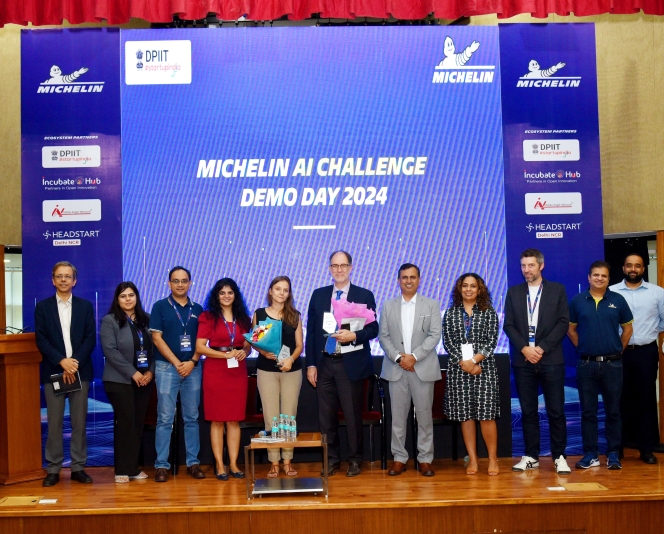
Michelin India has announced the winners of its Michelin AI Challenge competition out of the 106 entries it received from all over India.
Launched in collaboration with the Department for Promotion of Industry and Internal Trade (DPIIT) and Startup India, the competition – designed to foster innovation and entrepreneurship in the Indian AI startup ecosystem while exposing the participants to global best practices – recognised Kogo.ai, Prophecy, and Zangoh.ai for their innovative contributions and for their learning opportunities to co-build on strategic projects as well as to receive mentorship.
They were among of the top 10 participants – startups – that pitched their ideas. The winners were selected through a careful evaluation by a team of Michelin’s AI data scientists, business leaders, product managers and developers.
With 60 percent of the 106 entries found to have come from tier 1 and tier 2 cities, highlighting diverse, innovative AI solutions that cut through the geographical barriers and speak about the nation’s talent, the competition ran for 12 weeks. It encompassed stages like outreach, applications, shortlisting and mentorship.
The winners were selected from a round of top ten contenders who presented projects at the demo day (in September 2024) at IIT Delhi. They were awarded in the presence of Petros Sourmelis, Minister-Counsellor, Delegation of EU to India and Bhutan; Marie Khater, Deputy Head of the Regional Economic Department for India and South Asia, Embassy of France; Dr Ambica Rajagopal, Michelin Group's Chief Data and AI Officer, and Shantanu Deshpande, Managing Director of Michelin India.
The three winning teams were awarded paid pilot projects from Michelin with funding of up to INR 500,000 each. The three winning teams will be given access to global contracts and incubation support from Michelin leadership.
ZF, BMW Sign Long-Term Supply Agreement For Drive Technologies
- By MT Bureau
- February 03, 2026
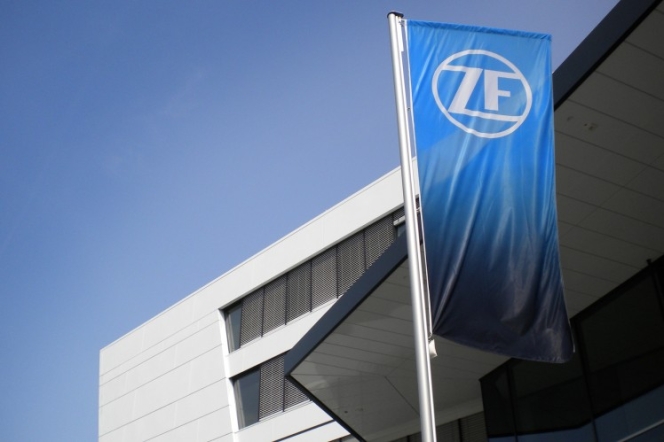
German tier 1 supplier ZF Friedrichshafen and the BMW Group have entered into a long-term supply agreement for passenger car drive systems. The contract, valued at several billion euros, extends until the late 2030s.
The agreement focuses on the supply and continued development of the 8-speed automatic transmission (8HP). The partners aim to support low-emission mobility and maintain technological flexibility during the industry transition.
A central component of the partnership is the technical evolution of the 8HP transmission kit to meet the requirements of electrified drives. The development will focus on increasing efficiency and performance for future vehicle concepts.
Mathias Miedreich, CEO of ZF, said, “Together with BMW, we are sending a strong signal for innovation, efficiency, and sustainability in an industry undergoing dynamic change. This agreement highlights the strategic importance of our 8-speed automatic transmission as a key technology for the transformation of drive systems.”
The duration of the contract provides both ZF and BMW with planning stability in a changing market. ZF aims to strengthen its position as a system supplier while reducing risks through close collaboration with the carmaker.
Sebastian Schmitt, Head of ZF's Electrified Drive Technologies division, explained, “The new agreement with BMW shows how important long-term planning horizons are for technological advancements. It creates clarity and stability for both companies and enables us to align the next generation of the 8HP specifically toward efficiency, performance, and long-term viability.”
Leapmotor Selects Aumovio For Safety Technologies
- By MT Bureau
- February 02, 2026
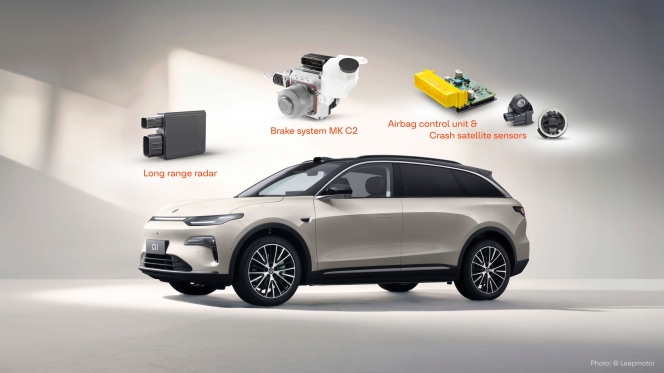
Aumovio has entered a supply agreement with Chinese electric vehicle manufacturer Leapmotor to provide safety components for the carmaker’s B and C platforms.
Several models within Leapmotor’s B platform now utilise Aumovio's long-range radar, electric parking brake and airbag control unit (ACU). Models on the C platform, including the C10, C11 and C16 SUVs, feature the latest generation of the MK C2 one-box brake system, alongside the long-range radar and ACU.
The project was completed with a development cycle approximately one-third shorter than traditional automotive timelines. Aumovio attributed its speed to ‘local-for-local’ strategy in China, where the company operates 20 sites and employs around 10,000 staff. In 2024, Aumovio held a 14 percent share of market revenue in the region.
The supplied technologies include:
- MK C2 Brake System: A unit combining the master cylinder, electronic brake system, and brake booster. It is produced locally in Shanghai.
- Long-Range Radar: A sensor with a detection range of up to 280 metres, used for driver assistance across both platforms.
- Airbag Control Unit (ACU): Integrated with crash satellite sensors, these components are manufactured in Changchun.
Boris Mergell, Head of the Safety and Motion business area at Aumovio, said, “Pairing ‘China speed’ with ‘German quality’ technologies helped us to support a rapid roll-out with our latest safety technologies. This underscores Aumovio’s course towards an adaptive powerhouse that works flexibly and closely with customers to innovate. It also shows that we continue to strengthen our customer relationships in the important market China.”
The partnership supports Leapmotor’s international presence. The B10 and B05 models, which feature Aumovio's ACU and radar technology, were showcased at the IAA 2025 in Munich as part of the manufacturer's European entry.
LTTS Secures Multi-Year Deal From Automotive OEM For Engineering And R&D
- By MT Bureau
- January 28, 2026
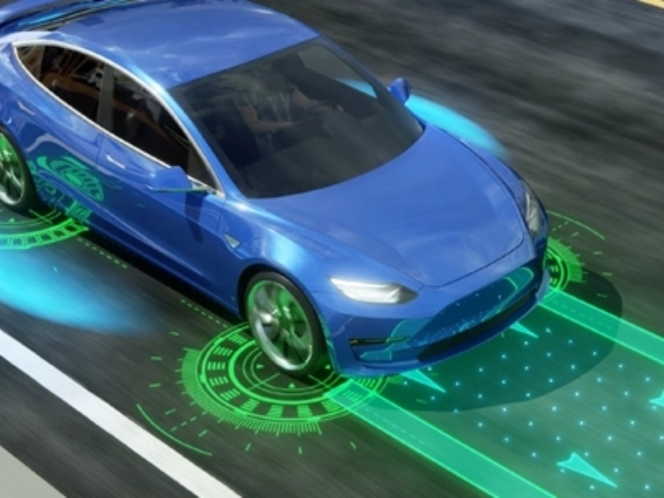
Bengaluru-headquartered ER&D company L&T Technology Services (LTTS) has announced a multi-year engagement within its mobility segment from an automotive manufacturer. The agreement involves software, connectivity and digital engineering services across vehicle technology domains. This win follows the company’s investments in R&D labs and mobility infrastructure designed for programs with global manufacturers.
The engagement covers mobility engineering capabilities, including embedded systems, digital platforms, verification and validation, cloud integration and cybersecurity. LTTS intends to use its engineering expertise and delivery frameworks to support the customer's technology roadmap.
At present, LTTS operates 22 design centres and 100 innovation labs globally.
The agreement strengthens the partnership between LTTS and the automotive manufacturer in the area of mobility engineering. The company provides design, development, and testing services across the mobility, sustainability, and tech segments.
Alind Saxena, Executive Director and President, Mobility and Tech at L&T Technology Services, said, “We are proud to deepen our partnership with the valued customer through this strategic engagement. LTTS brings together domain-led engineering, secure development practices and excellence in global delivery to accelerate the future of premium mobility. The win reflects the trust placed in our teams and our commitment to delivering world-class engineering at scale”.
Valeo And NATIX Network Partner To Develop Open-Source World Foundation Model
- By MT Bureau
- January 25, 2026
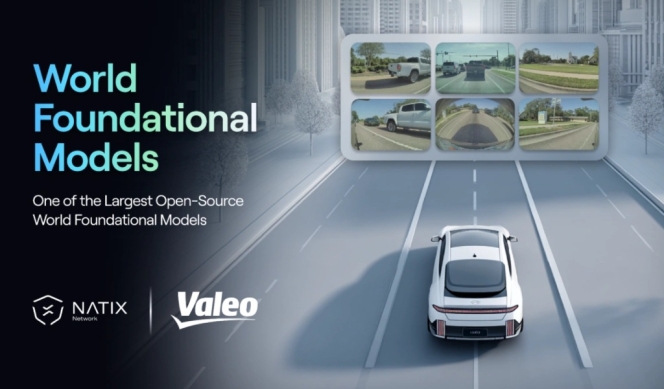
French technology company Valeo and NATIX Network have announced a partnership to develop a multi-camera World Foundation Model (WFM). The project combines Valeo’s research in artificial intelligence and generative modelling with NATIX’s decentralised physical infrastructure network (DePIN) to create an open-source platform for autonomous driving and robotics.
The initiative aims to move beyond perception-based models by creating a system capable of predicting future states and reasoning about physical interactions in a four-dimensional environment. The model will be trained using NATIX’s data network, which has collected 600,000 hours of video data across the US, Europe and Asia over seven months. This data provides the multi-camera inputs necessary for the spatial perception required by autonomous vehicles and robots.
The partnership builds upon Valeo’s existing open-source frameworks, VaViM (Video Autoregressive Model) and VaVAM (Video-Action Model). While these frameworks were previously trained primarily on front-camera datasets, the integration of NATIX’s multi-camera network expands the AI’s field of vision to 360 degrees.
Under the open-source framework, the partners will release models, datasets and training tools. This approach is intended to allow the research community to fine-tune models and benchmark physical AI across various driving conditions and geographic regions. The collaboration seeks to accelerate the deployment of end-to-end AI models by learning from real-world edge cases captured by vehicles in operation.
Marc Vrecko, Chief Executive Officer, Valeo’s Brain Division, said, “Since our creation in 2018, Valeo’s AI research center has been at the forefront of AI research in the automotive industry, especially in the fields of assisted and autonomous driving. Our goal has always been to advance mobility intelligence safely and responsibly. By combining Valeo’s generative world modeling research expertise with NATIX’s global multi-camera data, we are accelerating both the quality and the accessibility of next-generation end-to-end AI models, enabling the research community to build upon strong open models.”
Alireza Ghods, CEO and Co-Founder, NATIX, added, “WFMs are a once-in-a-generation opportunity — similar to the rise of LLMs in 2017–2020. The teams that build the first scalable world models will define the foundation of the next AI wave: Physical AIs. With our distributed multi-camera network, NATIX has a clear advantage of being able to move faster than large OEMs.”







Comments (0)
ADD COMMENT